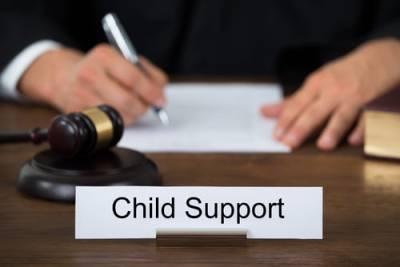Recent Blog Posts
How is Child Support Calculated in Illinois?
 Parents going through a divorce in Illinois may experience some understandable anxiety when faced with the prospect of making or receiving child support payments. The paying parent may worry whether they will be able to afford their payments and sustain their current standard of living. The receiving parent may worry that payments will not get made and that their children will suffer as a result.
Parents going through a divorce in Illinois may experience some understandable anxiety when faced with the prospect of making or receiving child support payments. The paying parent may worry whether they will be able to afford their payments and sustain their current standard of living. The receiving parent may worry that payments will not get made and that their children will suffer as a result.
Illinois courts and judges take many factors into account when establishing a parent’s child support obligations. Understanding how these decisions are made is an important part of planning for your financial future. In this blog, we will explain the methods generally used to determine child support payments. It is important to remember that the exact calculation can be a lengthy and complex process, and the best person to answer your questions is an experienced Illinois family law attorney.
What Factors Does a Court Consider Regarding Child Support?
What is the Financial Impact of Remarriage on a Divorce Agreement?
 Although most spouses could comfortably walk away from their partner after a divorce and never speak to them again, reality does not work that way. Even after a couple gets divorced, several things can keep them connected long into the future. This is especially true if children are involved. Child support, spousal maintenance, and arranging shared parenting schedules often compel former spouses to work together for many years after the marriage has ended.
Although most spouses could comfortably walk away from their partner after a divorce and never speak to them again, reality does not work that way. Even after a couple gets divorced, several things can keep them connected long into the future. This is especially true if children are involved. Child support, spousal maintenance, and arranging shared parenting schedules often compel former spouses to work together for many years after the marriage has ended.
This means that the decisions of each partner often affect the other, and few decisions have as much of an impact as the remarriage of a former spouse. Former spouses who wish to get remarried often wonder how their finances will change, and whether they will need to support two families and two spouses. This article will discuss the two most common issues a remarriage can impact - child support and spousal maintenance.
What Can We Do if We Want a Prenup and Are Already Married?
 In the rush and excitement of planning for a wedding, many couples overlook the importance of a prenuptial agreement. But after the wedding is over and they settle into real life as a married couple, they may want to create a shared arrangement regarding their finances.
In the rush and excitement of planning for a wedding, many couples overlook the importance of a prenuptial agreement. But after the wedding is over and they settle into real life as a married couple, they may want to create a shared arrangement regarding their finances.
In many ways, postnuptial agreements are similar to prenuptial agreements. They can address how a couple will deal with day-to-day finances, work together towards retirement, and how they will allocate separate and marital property in the event of a divorce. Although prenuptial and postnuptial agreements may not seem romantic, they are actually a great way loving spouses can protect each other - whether they stay together or separate.
Who Can Benefit From a Postnuptial Agreement?
One common misconception about marital agreements is that they are only beneficial to older spouses, those who already have substantial financial resources, or those who share children from previous marriages. Although it is true that a prenup or postnup can be valuable to people in those circumstances, a postnuptial agreement can be equally valuable to a young couple just beginning their journey together in life.
Can I Record Conversations with My Spouse During Divorce in Illinois?
 Modern technology has made it very easy to record every moment of our lives. Photo, video, and voice recordings of people acting poorly are all over the internet. Although people getting divorced in Illinois may believe that recording their spouses doing something threatening or illegal would be justified and therefore no big deal, Illinois and federal law are quite strict regarding legal and illegal recordings.
Modern technology has made it very easy to record every moment of our lives. Photo, video, and voice recordings of people acting poorly are all over the internet. Although people getting divorced in Illinois may believe that recording their spouses doing something threatening or illegal would be justified and therefore no big deal, Illinois and federal law are quite strict regarding legal and illegal recordings.
Many people have legitimate reasons to fear their spouse during an ongoing divorce process and may want to surreptitiously document threats or abusive behavior. Although there are times when secret recording can be done legally, it is easy to violate these laws and a recording could be inadmissible as evidence - or worse, get the person doing the recording in serious legal trouble.
When Can Conversations Be Legally Recorded in Illinois?
Illinois is an all-party consent state when it comes to recordings. This means that everyone involved in a conversation must be aware that recording is taking place. They do not have to consent to the recording; they must only be aware of it.
How is Spousal Maintenance Handled in Illinois?
 Getting a divorce can have a major, ongoing impact on your finances. After the divorce is over and all the court and attorney expenses have been paid, many divorcees must continue to make spousal maintenance payments to their former spouses.
Getting a divorce can have a major, ongoing impact on your finances. After the divorce is over and all the court and attorney expenses have been paid, many divorcees must continue to make spousal maintenance payments to their former spouses.
Knowing how spousal maintenance is handled and what kinds of maintenance there are in Illinois is crucial for managing your options and expectations. In this article, we will explore what the Illinois Marriage and Dissolution of Marriage Act allows in terms of spousal maintenance, how payments are calculated, and how long you can expect to make these payments.
How is Spousal Maintenance Calculated?
Maintenance payments are allocated based on a fairly simple equation but judges have wide leeway to adjust payments depending on other factors as well, such as child support obligations or spousal support payments already being made to previous spouses. The basic formula for spousal maintenance is 33 percent of the paying spouse’s annual net income, minus 25 percent of the receiving spouse’s annual net income.
When Can a Custody Evaluator Be Helpful in an Illinois Divorce?
 Deciding how to arrange a parenting time schedule is never easy, but it can be particularly difficult when both parents are extremely hostile toward each other or when a parent is poorly equipped to care for their child. Sometimes, the court cannot determine the most appropriate arrangement without the assistance of other professionals, such as guardian ad litem or custody evaluators.
Deciding how to arrange a parenting time schedule is never easy, but it can be particularly difficult when both parents are extremely hostile toward each other or when a parent is poorly equipped to care for their child. Sometimes, the court cannot determine the most appropriate arrangement without the assistance of other professionals, such as guardian ad litem or custody evaluators.
What Does a Custody Evaluator Do?
A custody evaluator is a trained professional who is usually a psychologist, psychiatrist, or attorney. Custody evaluators are different from child representatives because they do not legally represent the child or anyone else. A custody evaluator’s job is to work with the judge, the parents, the child, and any other relevant parties to objectively assess what would be in the best interests of the child.
Does Illinois Allow You to Remarry Your Ex-Spouse?
 For many divorced individuals, the prospect of remarrying a former spouse is the last thing on their minds. However, this is a choice that a surprising number of people make - and, according to the research, they frequently do it successfully.
For many divorced individuals, the prospect of remarrying a former spouse is the last thing on their minds. However, this is a choice that a surprising number of people make - and, according to the research, they frequently do it successfully.
People who seek to remarry their former spouse often have very good reasons for wishing to do so. After some time apart, a couple may realize that getting divorced does not rid them of the responsibility to raise their children together. A shared history and vision for the future often make it possible to overcome past hurt and rekindle a relationship.
However, marriages that ended once can end again. Former partners getting remarried should consider several things before taking a second leap into commitment.
Manage Existing Child and Spousal Support Obligations
Spousal support payments automatically end once the receiving partner gets married. However, the paying spouse must officially notify the receiving spouse that the payments will end at least 30 days before the wedding. A verbal agreement between two former spouses that they intend to get married is not a justification to stop paying alimony; if they break up before the wedding, past and future support payments will still be due.
How Does Domestic Violence Change the Divorce Process in Illinois?
 Statistics about domestic violence in Illinois are tragic and shocking. The Center for Disease Control (CDC) estimates that nationally, about 35% of both men and women experience harm by an intimate partner during their lifetime. In Illinois, these rates are even higher for women.
Statistics about domestic violence in Illinois are tragic and shocking. The Center for Disease Control (CDC) estimates that nationally, about 35% of both men and women experience harm by an intimate partner during their lifetime. In Illinois, these rates are even higher for women.
Unfortunately, domestic violence often occurs within the context of a marriage. Sexual abuse, physical abuse, verbal abuse, emotional manipulation, and withholding necessary financial resources are common forms of marital abuse. If you are a victim of spousal abuse and are considering divorce, there are a few additional actions you may want to consider.
File for an Order of Protection
Orders of Protection are legally binding orders from the court that prohibit an abusive person from contacting or coming within a certain distance of their victim. You can file for an Emergency Order of Protection (EOP), which will give you immediate protection for 21 days. After the EOP expires, you may need to attend a hearing to get a Plenary Order of Protection that can last up to two years. Orders of Protection can also prohibit an abuser from contacting or coming near your children. Violations of Orders of Protection are punishable by arrest and incarceration.
What is Commingled Property in an Illinois Divorce?
 Dividing marital assets between a divorcing couple is often one of the most complex and difficult aspects of the divorce process. Couples who cannot reach an agreement during the property division process may find themselves involved in a contentious litigation process.
Dividing marital assets between a divorcing couple is often one of the most complex and difficult aspects of the divorce process. Couples who cannot reach an agreement during the property division process may find themselves involved in a contentious litigation process.
One common disagreement occurs when determining whether an asset is owned individually by one spouse or belongs to both spouses in the form of marital property. Complex and illiquid assets such as real estate, pensions, investment accounts, businesses, and vehicles could all be considered either marital or nonmarital property, depending on when they were acquired. An asset that began as nonmarital property may become marital property through a process known as “commingling.”
What is Commingled Property?
Only marital property is subject to division in a divorce. This includes both assets and debts that you, your spouse, or both of you together acquired during your marriage. However, even if an asset was acquired during the marriage, that does not necessarily make it marital property. For example, an asset acquired during the marriage could be considered nonmarital property if it was:
Do I Have to Establish Paternity for My Child in Illinois?
 If you are expecting a child and do not anticipate having the father present in the child’s life, you may have some questions and concerns about the impact of the father’s absence. Among the issues women in this situation face are whether you should tell the father you are pregnant or list his name on the child’s birth certificate. You may be unsure whether you want to pursue child support, or whether the father will ask for parental responsibilities or parenting time. Many women are in this situation, and your concerns are normal. There is no right answer, as there are benefits but also potential drawbacks to establishing paternity. Ultimately, whether you want to do so depends on your situation.
If you are expecting a child and do not anticipate having the father present in the child’s life, you may have some questions and concerns about the impact of the father’s absence. Among the issues women in this situation face are whether you should tell the father you are pregnant or list his name on the child’s birth certificate. You may be unsure whether you want to pursue child support, or whether the father will ask for parental responsibilities or parenting time. Many women are in this situation, and your concerns are normal. There is no right answer, as there are benefits but also potential drawbacks to establishing paternity. Ultimately, whether you want to do so depends on your situation.
Establishing Paternity for an Unmarried Couple
When a couple is married and the woman has a child, Illinois law presumes the husband is the child’s father. The couple does not need to establish paternity to put the father’s name on the child’s birth certificate. However, if the mother is not married, the law makes no presumption about who is the child’s father and paternity can be legally established in one of three ways:

















